Last Updated on: 22nd July 2024, 03:37 am
Welcome to our quick guide on how to check your tax code! If you’re wondering about your tax code, personal allowance, or how much tax you can expect to pay, you’ve come to the right place. In this article, we’ll provide you with all the information you need to stay informed and in control of your tax obligations.
To check your tax code and personal allowance, as well as see your estimated income and the tax you can expect to pay for the current tax year, you can use the online service provided by HM Revenue and Customs (HMRC). This service covers the current tax year from 6 April 2023 to 5 April 2024.
With the HMRC tax code checker, you can also update your income details from jobs and pensions, check if your tax code has changed, and inform HMRC about any changes that affect your tax code.
Accessing the service is easy – simply sign in to your personal tax account using your Government Gateway user ID and password. If you don’t have a personal tax account, you can create one when you sign in for the first time using your National Insurance number or postcode and supporting documents.
It’s important to note that the service is not available for those who only pay Income Tax through Self Assessment.
How to Check Your Income Tax for the Current Year?
To ensure accurate tax calculations and avoid any issues with overpayment or underpayment, it is crucial to check your income tax for the current tax year. By using the online service provided by HMRC, you can easily access important information regarding your tax code, personal allowance, and estimated income from jobs and pensions.
To begin the process, you will need to sign in to your personal tax account using your Government Gateway user ID and password. If you don’t already have a personal tax account, don’t worry! You can create one when signing in for the first time using either your National Insurance number or postcode, along with any necessary supporting documents.
Once you have access to your personal tax account, you can navigate to the relevant section to check your income tax details. This service allows you to verify your tax code, personal allowance, and estimated income for the current tax year. You can also update your income details from jobs and pensions to ensure the accuracy of tax calculations.
The online service provided by HMRC not only gives you access to crucial information but also provides valuable insights into the tax you can expect to pay for the current tax year. By regularly checking and staying updated on your income tax, you can avoid paying too much or too little tax and remain compliant with tax regulations.
Don’t miss out on the benefits of keeping a close eye on your income tax. Take advantage of the convenience and accessibility of the online service provided by HMRC and make sure you’re on top of your financial obligations.
For more information and to access the online service, visit the HMRC Personal Tax Account website.
Table: Overview of Checking Your Income Tax
| Steps | Description |
|---|---|
| 1 | Sign in to your personal tax account using your Government Gateway user ID and password |
| 2 | If you don’t have a personal tax account, create one by providing your National Insurance number or postcode |
| 3 | Navigate to the relevant section to check your tax code, personal allowance, and estimated income |
| 4 | Update your income details from jobs and pensions, if necessary |
| 5 | Review the tax you can expect to pay for the current tax year |
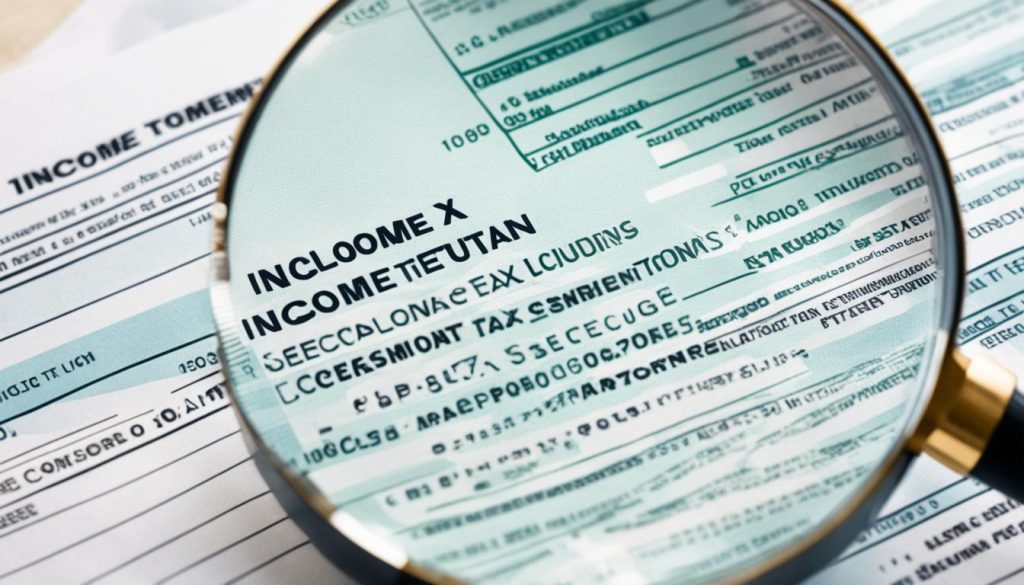
By following these steps, you can stay informed about your income tax and ensure that you are paying the correct amount. Regularly checking your income tax for the current year is an important aspect of managing your finances and remaining compliant with tax regulations.
How to Check My Tax Code?
When it comes to finding your tax code, there are several documents you can refer to. These documents provide valuable information about your tax code and help you understand how it is calculated. By knowing your tax code, you can ensure that you’re being taxed correctly and avoid any potential issues.
Here are the documents you can check:
- Payslip: Your payslip is a useful source of information as it typically includes your tax code. Look for a section labeled “Tax Code” or “Tax Reference” on your payslip.
- P45: If you have recently left a job, your P45 form will contain your tax code. This document is provided by your previous employer and is important for tax purposes.
- P60: Your P60 form is an annual tax review document that summarizes your income and tax deductions for the tax year. It also includes your tax code.
- Tax Code Notice: HM Revenue and Customs (HMRC) may send you a tax code notice letter to inform you of any changes to your tax code. This letter provides details about your tax code and its implications.
- Pension Advice Slip: If you receive a pension, your pension advice slip may display your tax code. This document is usually provided by your pension provider.
If you’re unable to find your tax code using these documents, don’t worry. You can always reach out to the HR department at your workplace for assistance. They will be able to provide you with the necessary information or guide you on where to find it. Alternatively, you can also check with your pension provider if you have a pension scheme.
Remember, understanding your tax code is essential for ensuring accurate tax calculations and avoiding any potential tax discrepancies.
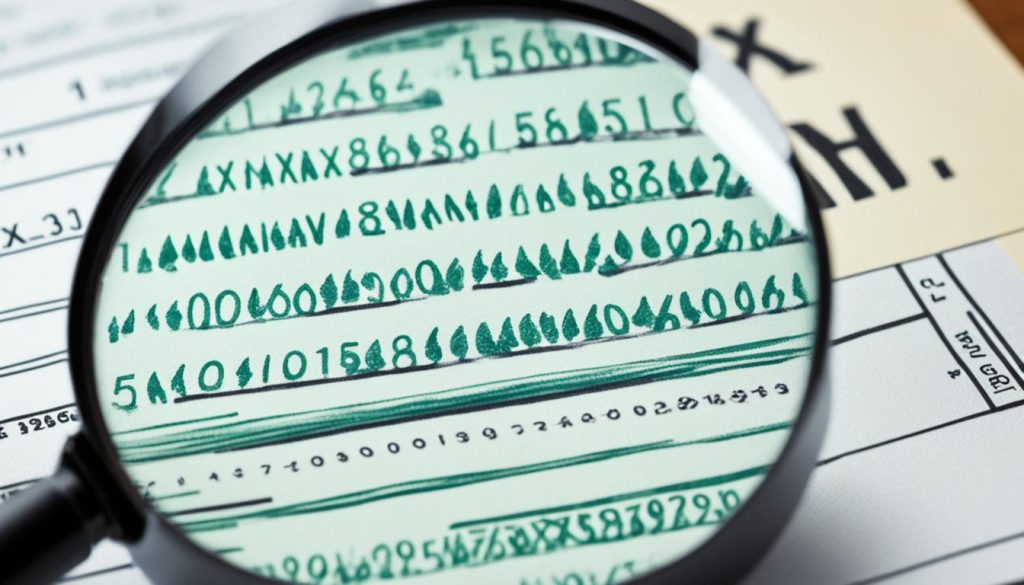
Understanding Tax Codes and Their Meanings
Tax codes play a crucial role in determining the amount of tax you can earn tax-free. They are composed of a combination of letters and numbers that hold specific meanings. By understanding these codes, you can ensure that you’re being taxed correctly and avoid any potential overpayment or underpayment of taxes.
The letters at the end of your tax code indicate your personal circumstances and how they influence the tax-free earnings you’re entitled to. For example, the letter L signifies that you have a tax-free personal allowance. Other letters such as BR, D0, D1, 0T, K, M/N, NT, and T have different implications and correspond to unique tax situations.
In addition to the letters at the end of the tax code, there may also be additional letters at the front if you reside in Scotland (S) or Wales (C). These regional variations may further affect your tax obligations.
It’s essential to familiarize yourself with the meanings behind these codes to ensure accurate tax calculations. By doing so, you can guarantee that you’re not paying more than necessary or encountering any surprises when it comes to your tax liabilities.
Standard Tax Code
One of the most common tax codes is the standard tax code in the UK. It consists of the letter L followed by numbers, such as L1250L. The letter L signifies a standard tax-free personal allowance, while the numbers represent the tax-free earnings you can earn (usually based on an annual basis).
Emergency Tax Code
If you start a new job and your employer doesn’t have enough information to assign you the correct tax code, you may be placed on an emergency tax code. This code typically begins with the letter 0T, and it means that you’re not receiving any tax-free allowance. As a result, you may be charged a higher rate of tax until your tax code is updated with accurate information.
| Tax Code | Meaning |
|---|---|
| L | Standard tax code indicating a tax-free personal allowance |
| BR | Basic rate. All income is taxed at the basic rate (20%) |
| D0 | Higher rate. All income is taxed at the higher rate (40%) |
| D1 | Additional rate. All income is taxed at the additional rate (45%) |
| 0T | Emergency tax code with no tax-free allowance |
| K | Used when deductions or expenses exceed the tax-free allowance |
| M/N | Marriage allowance. The code allows you to transfer part of your personal allowance to your spouse or civil partner |
| NT | No tax, often used for individuals not liable to pay tax |
| T | Higher rate tax code when there are items that the individual must pay tax on |
Understanding your tax code is crucial for managing your tax obligations effectively. By comprehending the different letters and numbers in your tax code, you can ensure that you’re being taxed accurately and avoid any potential underpayment or overpayment of taxes.
Reasons for Tax Code Changes
There are several reasons why your tax code may change. Changes can occur due to updates in the tax system, adjustments made by HMRC based on changes to your personal circumstances, or changes in your income from jobs and pensions.
For example, if you start a new job or receive a pay increase, your tax code may be adjusted to reflect the higher income. It’s important to review your tax code regularly and inform HMRC of any changes that may affect your tax code to ensure accurate tax calculations and avoid any potential tax discrepancies.
Here are the key reasons for tax code changes:
- Updates in the tax system: The tax system undergoes regular updates, including changes in tax rates and allowances. These updates may require adjustments to your tax code.
- Changes in personal circumstances: Significant life events such as getting married, having children, or changes in employment status can impact your tax code. HMRC may make adjustments to reflect these changes.
- Changes in income from jobs and pensions: Any changes in your income, such as starting a new job, receiving a pay increase or bonus, or changes in pension income, may lead to adjustments in your tax code.
By staying proactive and keeping HMRC updated on relevant changes, you can ensure that your tax code accurately reflects your personal circumstances and income, helping you avoid any surprises when it comes to your tax obligations.
Common Reasons for Tax Code Changes
| Reason | Explanation |
|---|---|
| Starting a new job | When you start a new job, HMRC will assign you a tax code based on the information provided by your employer. This code will reflect your tax-free allowance and ensure correct tax deductions. |
| Pay increase or bonus | If your income from your current job increases due to a pay raise or a bonus, HMRC may adjust your tax code to reflect the higher income. |
| Change in employment status | Switching from being self-employed to being an employee or vice versa can result in changes to your tax code as your income and tax obligations may differ. |
| Change in marital status | Getting married or entering into a civil partnership can affect your tax code. HMRC may make adjustments to reflect the changes in your personal circumstances. |
| Changes in pension income | If you receive pension income, any changes in the amount of your pension payments may lead to adjustments in your tax code. |
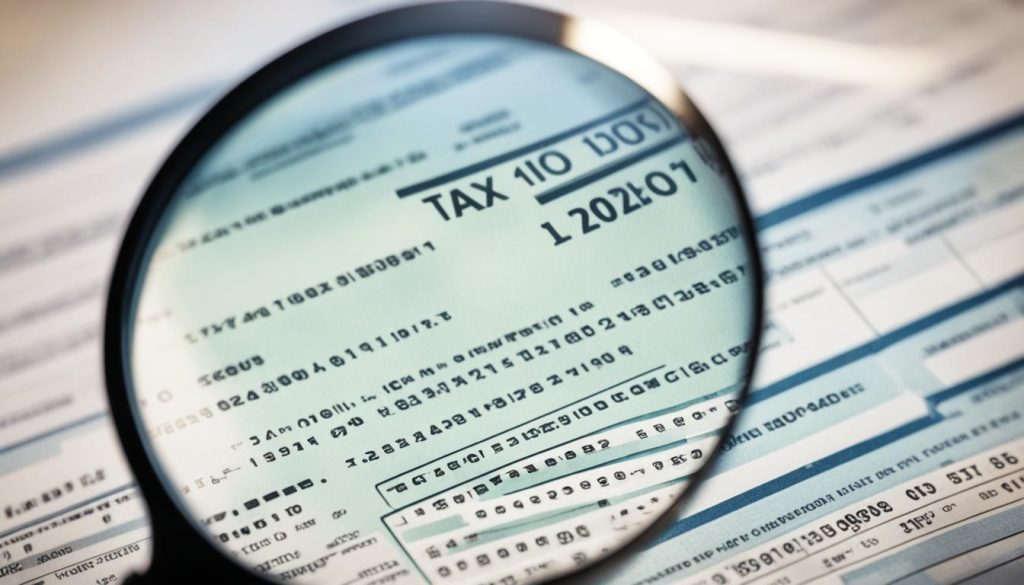
Understanding the reasons for tax code changes can help you better manage your tax obligations and avoid any potential errors. Remember to review your tax code regularly, inform HMRC of any relevant changes, and seek professional advice if you have any questions or concerns regarding your tax code.
Tax Code Errors and Refunds
Tax code errors can sometimes occur, resulting in either an overpayment or underpayment of taxes. If you suspect that there is an error in your tax code and you have paid too much tax, you may be eligible for a tax code refund from HMRC. Similarly, if you have underpaid taxes due to an incorrect tax code, it is important to rectify the situation by making additional tax payments to HMRC.
To avoid any potential issues, it is crucial to check your tax code on a regular basis to ensure its accuracy. If you believe there is an error, you should promptly notify HMRC so that they can review your case and make any necessary adjustments to correct the tax code. This will help to resolve any overpayment or underpayment issues you may be facing.
By taking proactive steps to monitor your tax code and promptly addressing any errors, you can ensure that your tax obligations are accurately calculated and that you are not paying more or less tax than you should be.
Common Tax Code Errors and Solutions
| Error | Solution |
|---|---|
| Your tax code does not include your full personal allowance. | Inform HMRC of any changes in your personal circumstances and provide them with the necessary documentation to update your tax code. |
| Your tax code includes incorrect information about your income. | Notify HMRC of any changes in your income from jobs and pensions so that they can adjust your tax code accordingly. |
| Your tax code has not been updated to reflect changes in tax legislation. | Contact HMRC and inform them of any changes in tax laws that may affect your tax code. |
If you discover an error in your tax code and have overpaid taxes, it is essential to claim a tax code refund as soon as possible. You can do this by contacting HMRC and providing them with the necessary information to support your claim. HMRC will review your case and determine whether you are eligible for a refund. If you have underpaid taxes due to an incorrect tax code, you may need to make additional tax payments to ensure that you fulfill your tax obligations.
Remember, staying vigilant and regularly checking your tax code can help you avoid unnecessary tax overpayments or underpayments. If you suspect an error, don’t hesitate to reach out to HMRC for assistance.
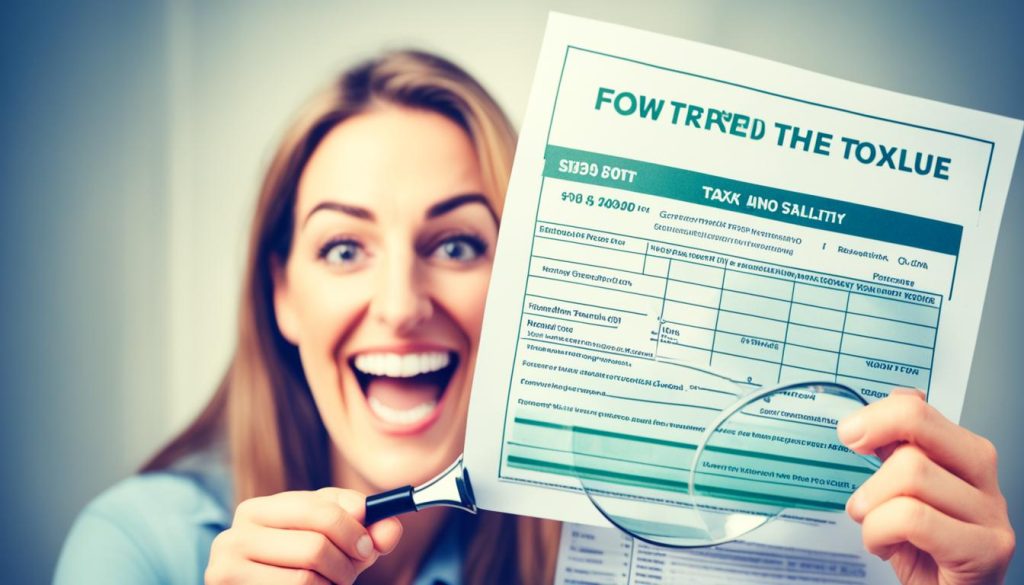
Next, we’ll conclude by summarizing the importance of checking your tax code and providing an overview of the key points covered in this article.
Conclusion
Managing your income tax obligations requires regular checks of your tax code. By reviewing your tax code, you can ensure that you’re being taxed correctly based on your personal circumstances and income. The HM Revenue and Customs (HMRC) provides a convenient online service through the personal tax account, allowing you to easily check your tax code, personal allowance, and estimated income for the current tax year.
It is crucial to keep your tax code up to date and inform HMRC of any changes that may affect it. This way, you can avoid the risk of overpaying or underpaying taxes and ensure that your tax obligations are accurately calculated. With the personal tax account, you can conveniently monitor and manage your tax code, making the process easier and more efficient.
Make it a habit to review your tax code regularly, especially when there are changes in your personal circumstances or income from jobs and pensions. By doing so, you can stay on top of your tax obligations and avoid any potential discrepancies. Remember, staying informed and proactive when it comes to your tax code is key to maintaining compliance and optimizing your tax situation.
FAQ
How can I check my tax code?
You can check your tax code by using the online service provided by HM Revenue and Customs (HMRC) through your personal tax account. Simply sign in using your Government Gateway user ID and password. If you don’t have an account, you can create one using your National Insurance number or postcode and supporting documents.
How can I check my income tax for the current year?
To check your income tax for the current year, you can use the online service available through your personal tax account. This service allows you to check your tax code, personal allowance, and estimated income from jobs and pensions. It also provides information on the tax you can expect to pay for the current tax year.
Where can I find my tax code?
You can find your tax code on various documents such as your payslip, P45, P60, tax code notice from HMRC, or your pension advice slip. These documents contain a combination of letters and numbers that make up your tax code. If you’re unable to find your tax code using these documents, you can contact your workplace’s HR department or your pension provider for assistance.
What do the letters and numbers in my tax code mean?
The letters in your tax code indicate your personal circumstances and how they affect the amount of tax you can earn tax-free. The numbers represent the tax-free earnings you’re entitled to in a pay period. Understanding these codes is important to ensure you’re being taxed correctly and to avoid overpayment or underpayment of taxes.
Why does my tax code change?
There are several reasons why your tax code may change. It can be due to updates in the tax system, adjustments made by HMRC based on changes to your personal circumstances, or changes in your income from jobs and pensions. For example, if you start a new job or receive a pay increase, your tax code may be adjusted to reflect the higher income.
What should I do if there’s an error in my tax code?
If you believe there is an error in your tax code and you have overpaid taxes, you may be entitled to a refund from HMRC. Similarly, if you have underpaid taxes due to an incorrect tax code, you may need to make additional tax payments. It’s important to check your tax code regularly and contact HMRC immediately if you believe there is an error.
Why is it important to check my tax code?
Checking your tax code is important to ensure that you’re being taxed correctly based on your personal circumstances and income. By reviewing your tax code regularly, you can avoid overpaying or underpaying taxes and ensure that your tax obligations are accurately calculated.
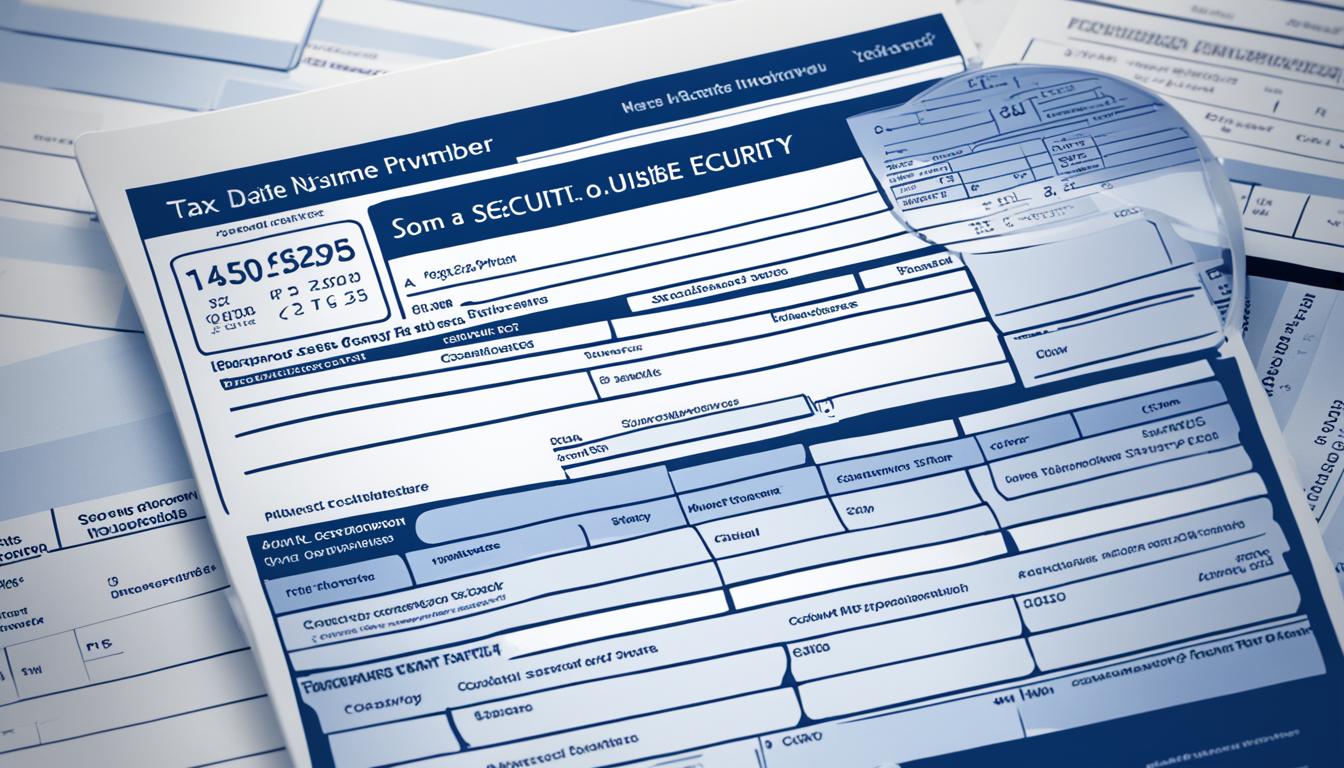











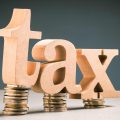
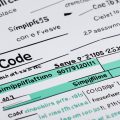


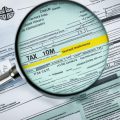


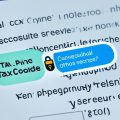
No Comments
Leave a comment Cancel